When Taekwondo Strikes (1973)
Directed by: Huang Feng
Written by: Huang Feng
Starring: Angela Mao, Carter Wong, Jhoon Rhee, Sammo Hung
AKA TAI QUAN ZHEN JIU ZHOU, STING OF THE DRAGON MASTERS
HONG KONG
AVAILABLR ON BLU-RAY: 22ND of JANUARY, from EUREKA ENTERTAINMENT
RUNNING TIME: 95 mins
REVIEWED BY: Dr Lenera
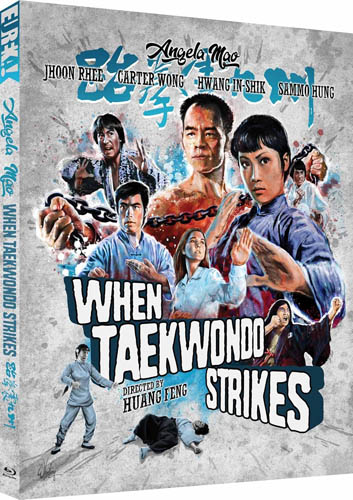
Korea during World War 2, when the country is under Japanese rule. Father Lewis and his niece Mary aid patriot Jin Zheng Zhi in fighting off some Japanese fighters. The priest’s Korean gardener reveals himself to be famed rebel leader Lee Chung Tung, a man who the Japanese want very baddy. and. He, Mary and Jin flee after failing to get Father Lewis, who could be in danger, to join them, meet up with Chinese hapkido fighter Huang Li Chen and they all retreat to the rebel headquarters. The Japanese return to the church to kidnap Lewis and torture him for information on the whereabouts of Lee, prompting Mary to look for him, while Lee has just discovered that the Yokoyama Karate School is the secret headquarters of the Japanese Secret Service in Korea….
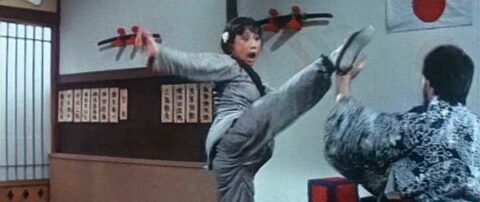
“So it looks like this taekwondo isn’t that good. aye”? Around a year ago Eureka released the two Angela Mao-starrers Hapkido and Lady Wbirlwind, both written and directed by Huang Feng, though When Taekwondo Strikes would have made just as good a pairing with Hapkido as its plot is very similar – but then again its title suggests that Mao, who does mainly hapkido, may not be very prominent. However, this isn’t true at all. While this film features an impressive cast of martial artists who were big at the time and who are often pitted against each other, the others besides Mao being Jhoon Rhee, Anne Winton, Wang In-Sik, Carter Wong and Kenji Kazama in addition to Sammo Hung and Yuen Biao who hadn’t long got started really, Mao gets more action than anybody else and is clearly the true star of the show. Like Hapkido it’s partly about action vs non-action, and is mostly serious, the humour relegated to things like a restaurant waiter telling one of the main characters that she needs to eat or drink otherwise she needs to leave – or was I just laughing at it because of the English dub? Said English dub is truly comical and adds some levity to a quite brutal tale which in its Cantonese language version is probably pretty grim, though I suppose that one can chuckle at the number of times the Japanese are referred to really badly, in fact probably even more than normal in one of these films where they’re the baddies. The need to cram in such a huge number of fights to accommodate the cast actually doesn’t undermine a story which is rather well paced and is good at allowing tension and anger to build so that we’re bursting to see the horrible villains get their just desserts, while it’s great to see taekwondo showcased so much for a change.
The titles are cleverly integrated with shots of the performers who are being named showing some moves, in what’s initially a mass training session before cuts to some of the stars who are probably somewhere else; those mountains just outside of Hong Kong pop up in the background of one place which looks very familiar indeed. The most interesting thing is probably that, in among the group of people, we can spot an honest-to-goodness Caucasian woman! This is Anne Winton, an American martial artist who was the first white one to have a large role in an Asian movie. She was sadly murdered by her husband in 1982. We get into our first fight immediately, with Wong as Jin being accosted by some dastardly Japs. Cornered in an alley, the leader of the group yells “Tell me why you have been hanging around Yokoyama’s school in the last few days, that’s one place where you shouldn’t hang around”. “You have no right to tell me where I can and cannot go, it’s my own country”, replies Zin. As soon as Zin begins to fight off his assailants, the leader cries “taekwondo, goddamnit, so that kid’s a rebel”. Zin is chased into a church where the gang leader backs down from hitting the priest there. This is a really suspenseful and well edited scene, the congregation including some people who really want to go to town on these Japanese but are trying to hold back even when being threatened. One man, supposedly the place’s gardener but soon to be revealed as rebel leader Lee, is repeatedly struck, and eventually Winton as Mary the priest’s daughter stops being able to control herself and cuts loose. Despite having been saved from a beating, Father Lewis is irate and demands to know who taught her taekwondo. He then decides to remain in the church, along with entrusting his daughter to Lee [though she hardly needs protecting] rather than leave with the others for the rebel base [this is sounding like Star Wars], despite clearly being in danger, something that Father Lewis and other characters ludicrously dismiss. After all, these Japanese “hate religion”. They really are bad!
The others meet up with another rebel named Huang, Mao showing up quite late, and arrive at the centre of the “Resurrection Movement For The Korean People”, which seems to consist entirely of martial artists. Lee waits until now to tell off Zin for starting trouble and not making it possible for them to go into town. In fact Lee spends a lot of time being rather ungrateful and not seeming to care about his underlings much. Father Thomas is soon, as expected, visited by the Japanese, and is whacked with a stick before being carted away. Huang goes to see him and finds that he’s gone. Then she and Lee put on a scene so that Lee can snoop around the Japanese karate school more easily; it’s a front for the Japanese secret service in Korea! However, this leads to tragedy for Huang who then swears revenge. Mary goes to look for her dad and finds him him in the dojo; she’s told that her badly beaten father will be released if she tells them where the rebel headquarters is, but she won’t do so, while Father Thomas gets a rather high opinion of himself and compares his sacrifice to that of Jesus. Mary reports back to Lee who also goes there, in a section that has an awful lot of to-ing and fro-ing, including suddenly sending three characters to Shanghai to deliver some important documents to resistance fighters over there in a rather unnecessary element to the story. But should we care much about that when all we’re here for are a lot of smackdowns? Well maybe we should a bit, and we can’t but help get increasingly irate at these Japanese, who include Hung being very dastardly here, dragging an old lady out of a building by her hair, and callously killing two characters whom we like.
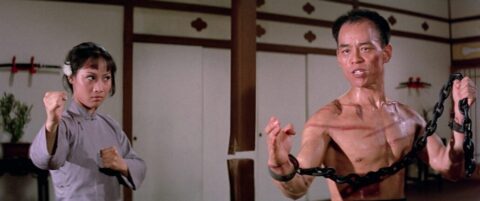
Hung was just getting into choreographing fights here but they still display a lot of force and showcase the skills of each participant. The first one in the church sees Wong and Winton battle some Japanese including Hung who gets a lot of screen time throughout, often fighting other cast members. He briefly battles Rhee who surprisingly gets few chances to show his stuff. Much better is the second fight in the church where Mao is assailed by Japanese; rarely has Mao seemed more formidable as she furiously bashes opponents, and it goes onto the tops of benches too. A bit of neck breaking seems to imitate Bruce Lee. Soon after that she encounters some more Japanese in a forest, and is so hard that she can kill an opponent with a sword that remains stuck in a tree trunk. She gets another major brawl next, engaging in some swordplay and fighting Hung, who then fights Rhee again, then soon after that Winton; this is another highlight, with Winton mostly dodging and rolling away from Hung before she gets to bites Hung’s leg, a good thing to do if you’re losing. Not long after, Rhee gets to fight Hung again before being rather quickly captured by lots of guys with hooks; surely they could have done something with this? However, Rhee’s character does get to do a very cool thing soon after. His hands are chained, but he’s able to strangle a traitor with his legs and the chain binding them together. The final battle doesn’t really have a lead-up; we just see Yokoyama and co. at dinner suddenly seeing a fight break out in the distance, which is of course Winton and Wong dispatching some henchmen. Wong gets to fight Wang In-Shik, while Winton sorts out more henchmen, then Mao fights Hung again, this encounter being really good with Hung initially seeming like a pushover before turning the tables for a while. Mao then fights Kenji Kazama as Yokoyama before Rhee, who also fights Wang [it sounds confusing though it sorta makes sense in the film], takes over, finally cutting loose, though mostly wielding a chain, meaning that we d0n’t get a sense of what this master of taekwondo can do.
There’s violence of a crueler kind in lengthy torture with sticks and irons, though of course somebody is still able to fight right away despite having only just suffered much punishment. Feng employs some of his usual odd angles though can’t do much with some of the weaker actors, perhaps the worst being Andre Morgan as Father Lewis; he just doesn’t seem suited for the part but was one of Golden Harvest’s main producers so nobody was going to say anything. Rhee, who almost made a film with Bruce Lee, does exude a sort of nobility even though the script seems to trying to make him rather smug and superior, while Winton has a real pleasant presence. Baio and Lam Ching-yin can be briefly seen. The afore-mentioned traitor character is of interest because he’s not really a bad guy, he just wants to feed his family. The production is a bit rough in some aspects though, especially in terms of the soundtrack, which has awkward edits. Somebody, probably the credited composer Loi Sjao Ha, obviously hunted down as many music cues as they could, then tried to cram them all in. Often two are combined, with only a few notes used from one. The main theme is well chosen, evoking both heroism and emotion, while some cues sound like they come from a Hollywood production from the ’30s or ’40s with their string-heave sentiment. A few seconds of Richard Strauss’s Also Sprach Zarathustra, used in 2001: A Space Odyssey, turn up, along with some Bernard Herrmann, a few notes from The Trouble With Harry and North By Northwest, the latter used amusingly, with the main fandango theme accompanying some people going into a bar. The music is the oddest aspect of a film which falls short of being the all-time classic of martial arts cinema that it should, and maybe could have been, but which should still give a lot of pleasure to fans of the genre.
Rating: 









SPECIAL FEATURES
Limited Edition O-Card slipcase featuring new artwork by Darren Wheeling [2000 copies]
1080p HD presentation on Blu-ray of the original Hong Kong theatrical cut from a brand new 2K restoration
We have the usual very fine restoration, helped by a source print which seemed to have had hardly any damage to it; one can usually spot some blemishes that weren’t able to be sorted out. The colours are rich and the image very detailed.
Original Mandarin mono audio
Of course I mostly watched the film with the English dub, but did occasionally switch over to the Mandarin, which has some clunky dialogue of its own, such as “What’s wrong Western monk, got a problem”?
“Classic” English dubbed mono audio
This is hardly one of the best of its kind, but it’s often comical voices can’t help but add to the entertainment if you like these things. An alternate English soundtrack is listed, perhaps the notoriously poor one that was released in the United States, but is not present on the disc.
Optional English Subtitles, newly translated for this release
Brand new feature length audio commentary by film historian and author Samm Deighan
In place of our usual stalwarts we have Deighan, who also did the track on Lady Whirlwind. Deighan is very informative on a variety of topics from the historical background, where we learn some interesting though perhaps not entirely surprising things such as Korean and Japanese historians differing on what the Japanese occupation of Korea was like, to Feng and Golden Harvest head Raymond Chow both claiming to have discovered Mao, while Golden Harvest, who allowed more freedom and better pay than Shaw Brothers, initially found it very hard to get people to sign with them because of the feud with Shaw Brothers. And I’ve never really thought of Mao as paving the way for other female action stars. I’m sure we didn’t need information on the likes of Mao and Hung, but this kind of material is brief and there’s more obscure stuff which is worth hearing. Deigham’s delivery is a tad monotone, but she clearly knows and loves her stuff – which is what’s most important really.
The Best of the Martial Arts Films (1990, dir. Sandra Weintraub. 91 mins) – feature-length documentary presented by John Saxon
This is basically an excuse to promote Golden Haarvest and show as manty clips as possible from a surprisingly small though diverse selection of films. I wouldn’t be surprised if this documentary turned a lot of people on to Hong Kong cinema back in the day. I remember seeing it on the shelf of a video shop but never rented it, though by then I was already a fan of this stuff anyway. I’m sure the UK video would have been missing part of the final fight scene shown, the Enter The Dragon cave fight which includes usage of the then-banned [in the UK] nunchuku. The names of the stars appear on red background to no musical accompaniment at all, though we do eventually hear the sounds of birds chirping, before going into a few seconds of Bruce Lee in Fist Of Fury followed by an array of other clips, most of them from films released on Blu-ray by Eureka Entertainment and 88 Films and reviewed by Yours Truly, and all set to Lalo Schifrin’s main title music from Enter The Dragon, a perfect introductory track. Then Saxon appears to talk how martial arts – well, Asian ones anyway – began. Lee is then talked about, as we see part of the factory fight from The Big Boss before Saxon goes on to mention Wing Chun, an excuse to show a training clip from Warriors Two. And so it goes on, with Jackie Chan, Hung, Biao, Mao, Cynthia Rothrock, Joyce Godenski, Michiko Nashiwaki, Yuen Wah, Sho Kosugi, Richard Norton etc all given their due via a very well chosen selection of clips which include some of the greatest fight scenes in cinema history, while a dubbed Hung, Chan, Baio, Rothrock, Robert Clouse [love him saying how Lee would choreograph fight scenes on paper with stick people], and Keith Cooke are interviewed as the subject moves from training to fighting females to the three fortunes. And so on.
Saxon doesn’t sound that enthusiastic. There’s also a bit where Saxon says that a clip is from Wheels On Meals when it’s actually from Dragons Forever, and another where he calls Richard Norton a “karate star”, but you can blame screenwriter Sandra Weintraub. For some reason a fight from Game Of Death contains different music, and all the clips are from the English dubbed editions. Nonetheless this works as a sort of “best of” Golden Harvest, and if you have a friend or family member who’s not sure about these amazing movies – show this to them. They may come away a fan and wanting to watch everything.
Interview with stuntman Billy Chan [20 mins]
Chan, who even doubled for Bruce Lee, gives an honest and interesting account of working on this film and how being a stuntman in the film industry at the time was. He compares the “laid back” Lau Kar Leung, who would arrive on set late, with the intense Hung, describes how the directors would have almost no input into fight sequences except to tell the action director things like how long the scene should be and the style of shooting, and says that the pay of Golden Harvest people was the same as Shaw Brothers, which contradicts what others have said. Chan seems a cool, self-effacing guy.
Trailers
A Limited Edition collector’s booklet featuring new writing by James Oliver [2000 copies]
Enjoy the sheer delight of Angela Mao kicking ass again, this time alongside a host of major martial artists of the time. Heaven for fans of the genre even some flaws are very apparent in the movie. The addition of “The Best of the Martial Arts Films” was a great move on Eureka’s part to provide good added value. Highly Recommended!


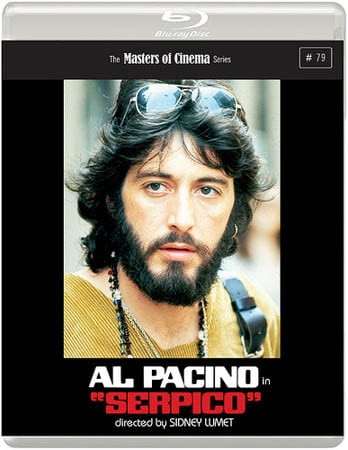
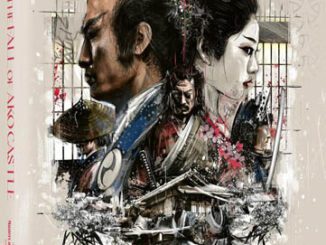
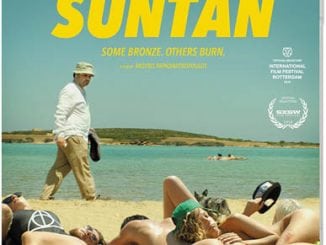
Be the first to comment